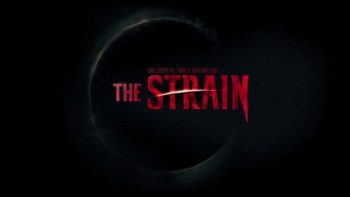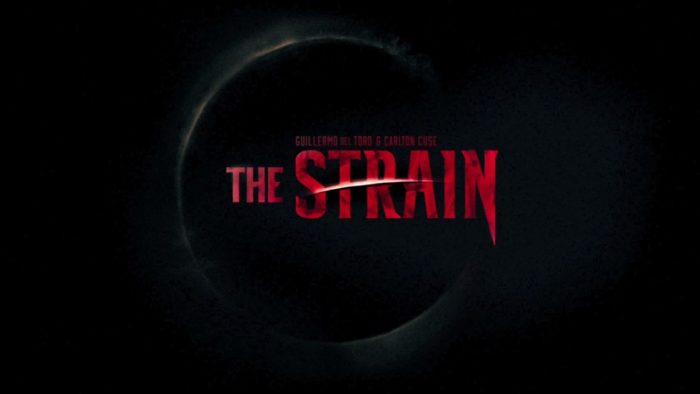Down With the Sickness
(Any Disturbed fans in the house? crickets)
This past Sunday, the series finale of the action/horror series The Strain aired after four seasons. The show was based on a trilogy by Guillermo Del Toro (the movie director) and Chuck Hogan. The basic premise is that a blood-borne disease turns people into daylight-shunning vampires, but they don’t bite with fangs; rather, they have a snake-like appendage that shoots out from a hole in their neck and latches onto their victims like a leech and siphons away their blood while transferring the disease which turns the victims into “munchers.” It’s a fairly complex tale with a CDC disease specialist as the main protagonist, and there is a diverse cast of supporting characters, along with an ancient book, Nazis, very unbelievable explanations of vampire lore, family squabbles, and a “Master” that needs to be killed to stop the plague, because every sentient attack on the human race follows the anthill hierarchy: kill the queen and the foot soldiers will scatter.

Image Copyright FX
Despite the story’s ambition, the books were just this side of ludicrous, and while the TV show did change a few things and simplify many others, it was more grounded and coherent as a whole, in my opinion. I can’t say that I’ll miss it but it was a good run while it lasted, and thankfully it ended as planned rather than being abruptly cancelled. And I do have to say that it was a unique take on the vampire phenomenon, making it a medical condition rather than something supernatural or sexy. The “munchers” are sub-human monsters that just want to feed. No goth fashion or underground raves or secret covens. The whole Master/slaves aspect aside, the breakdown of society and individual tensions would manifest in any horrific plague scenario, as other movies and shows have depicted.
It’s interesting how the biggest threat to human existence rarely gets news coverage. It’s not North Korea or global warming or white privilege; it’s disease. The rapid advancement of technology has seen a corresponding boom in medical breakthroughs, and we have been spared the population-decimating scourges of ages past. I remember feeling literally nauseous as I did research on the Black Death plague for my medieval fiction novel Nikolai the Penitent. The outbreak of the Spanish flu a century ago, which killed between 50-100 million people, and even the more recent SARS and Ebola epidemics remind us that the threat is always at the gate. With more than seven billion people on the planet, the opportunity for rogue viruses to find abundant hosts increases every day.

I can’t help but wonder if the only thing keeping us from falling prey to a sweeping pandemic is God’s providence. Considering that more than two and a half billion people don’t have access to basic sanitation, the likelihood of a mortal disease suddenly appearing is nothing short of terrifying. Science and medicine have worked tirelessly to keep that from happening, but the Book of Revelation tells us that plagues will once again fall upon the Earth. The two witnesses in chapter 11 wield plagues at will, and seven plagues descend in chapter 15, along with even more plagues in chapter 16. Unlike warfare or terrorism, there isn’t an enemy to fight against in an outbreak, and social order can break down frighteningly fast. H.G. Wells saw the power a germ can wield, having his alien invaders fall prey to the tiniest microorganisms despite standing tall against our mightiest arsenals.
I’m not a doomsayer or fearmonger. All I’m saying is wash your hands, thank God that you have clean running water, and pray that the horrors we read about in history, fiction, and the Bible won’t manifest themselves in our lifetime.







































[…] news coverage. It’s not North Korea or global warming or white privilege; it’s disease.” (Down With the Sickness, Sept. 20, […]